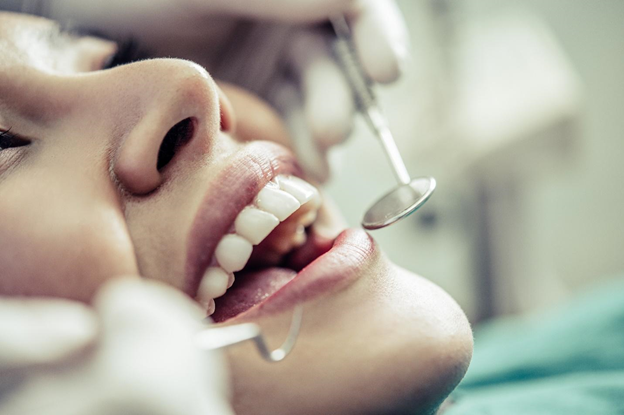Body health is linked to healthy gums. Healthy gums provide structural support and nutrients to the roots of the teeth. They act as a barrier to protect the teeth from harmful bacteria that can enter the bloodstream through the mouth. Maintaining oral hygiene helps prevent gum disease, which can lead to tooth loss. Having cavity-free teeth does not necessarily mean you have healthy gums. Gum disease usually causes no pain, so you may not be aware of any issues. Here’s how you can maintain and take good care of your teeth and gums for life.
Maintain Proper Dental Hygiene
Brushing your teeth regularly is an effective way to improve the health of your gums. Make sure that you are brushing well. Effective dental hygiene helps to remove food particles and plaque from your teeth. Brush your teeth in the morning and at night, twice a day, with a soft-bristle toothbrush for at least two minutes. You should replace your toothbrush every 3 to 4 months. Brush by keeping a 45-degree angle to the gums. The movement of the brush should be in short strokes.
Maximize Oral Hygiene with Fluoride Toothpaste
There are several varieties of toothpaste that can ensure fresh breath, whitening of teeth, and healthy gums. However, you should choose fluoride toothpaste, as fluoride is a powerful agent against bacteria and tooth infections. It is necessary to use fluoride toothpaste twice daily. It can help make your teeth and gums stronger and more protected. It can also strengthen your tooth enamel and stimulate the process of gum recovery.
Give Up Smoking
Smoking is one of the biggest causes of gum disease. Smoking or chewing tobacco can weaken your teeth and gums. Smokers are twice as likely to develop these diseases. It can promote bacterial growth in the mouth and increase the buildup of plaque and tartar on teeth. Smoking weakens your immune system, making it less capable of fighting gum and bacterial infections. It also increases the risk of oral cancer and slows the process of gum recovery after damage. Therefore, if you are a smoker, quit smoking.
Prefer Antibacterial Mouthwash
For effective dental care, use an antibacterial and alcohol-free mouthwash. Rinse with an antibacterial mouthwash can help reduce the number of bacteria in your mouth. The best mouthwash is one that is free of alcohol. Alcohol in mouthwash can reduce saliva production, which is essential for preventing tooth decay. Therefore, it is important to choose the best mouthwash for your oral hygiene routine.
Maintain Consistent Dental Care
You should visit a dentist every six months for a dental check-up, which includes a thorough cleaning of your mouth. With regular visits, a periodontist can help diagnose and treat chronic inflammatory gum diseases that affect the bone supporting the teeth. Early detection can prevent many severe problems.
If your gums are damaged and you have lost your teeth, a dentist may suggest dental implant surgery, which can provide artificial teeth to replace missing ones that work just like real teeth.








